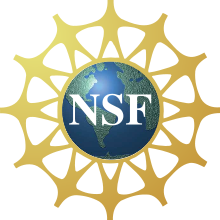
$1.2 Million NSF Grant Prepares Teachers to Work in High-Need Schools
May 2, 2019
New York Institute of Technology received a $1.2 million National Science Foundation (NSF) Robert Noyce Teacher Scholarship Program grant to prepare high school math and science teachers to work in high-need school districts. The institution will work with four public high schools on Long Island and the New York Hall of Science (NYSCI) to implement an innovative teacher training program.
The Robert Noyce Teacher Scholarship Program is an NSF effort to fund programs that fill the nation’s need for inspiring STEM educators. The scholarships, which provide tuition and academic support, open up the field of K-12 teaching to talented STEM graduates and professionals from all economic circumstances.
Beginning this summer, the first group of Robert Noyce Teacher Scholars at NYIT will undergo training in cultural competency, hands-on activities for STEM learning, and teaching with technology. In addition, they will complete coursework to earn a Master of Arts in Teaching (M.A.T.). After earning New York State’s initial teaching certification in biology, chemistry, math, or physics, Noyce Scholars from NYIT will be placed in permanent jobs in cooperating schools, where they will receive ongoing mentoring.
Scholarship recipients must agree to teach for at least two years in high-need school districts. The university has existing partnerships at Valley Stream Central, Roosevelt, Westbury, and Academy Charter high schools; students may arrange teaching placements in other area schools as well. The grant covers a total of 16 scholars over the next five years.
NYIT’s program will look to recruit potential teachers from minority communities that are typically underrepresented in high school science classrooms. “Research suggests that teachers who are African-American, Hispanic, or Native American are more likely to teach at high-needs schools and to serve as models,” said Principal Investigator (PI) Hui-Yin Hsu, Ph.D., professor and chair of teacher education in NYIT School of Interdisciplinary Studies and Education. Other factors in selecting Noyce Scholars are test scores, financial need, and faculty interviews. NYIT will pursue candidates from among its thousands of STEM-educated graduates and young alumni, as well as through partner schools, STEM organizations, and NYSCI events.
A key objective of the university’s Noyce Scholarship Program is to educate culturally sensitive and technologically competent science teachers. Noyce Scholars will take courses and workshops in culturally responsive teaching, technology integration, and computational thinking. These will be developed in partnership with faculty members from throughout the institution, including co-PIs Assistant Professor Minaz Fazal, Ph.D.; Professor Spencer Turkel, Ph.D.; and Assistant Professor Robert Feirsen, Ed.D.
Another critical objective of NYIT’s Noyce Scholars will be to engage high school students in STEM subjects. With help from NYSCI and partner high schools, the program will prepare teachers to inspire students’ interest. NYSCI, famous for interactive science, will work with the university to offer workshops showing how to incorporate hands-on activities into classroom science.
Stephen Uzzo, Ph.D., NYSCI’s chief scientist and an adjunct instructor in NYIT’s master’s program in instructional technology, and Michaela Labriole, NYSCI’s director of Strategic Education Initiatives, will spearhead NYSCI’s participation in the program. “Educating these Noyce Scholars will be an opportunity for all of us to shape, indirectly, a new generation of scientists, engineers, and other STEM-informed professionals,” said Uzzo.
Partner high schools will provide student teaching opportunities, with early field experiences and in-school mentors. “School-level support in high-needs schools is extremely important for retaining new teachers,” said Hsu. In addition, candidates who have early experiences in such schools are more likely to continue teaching there.
Ultimately, besides working with 16 new secondary science teachers over the next five years, this new Noyce Scholars Program will enhance understanding of how best to train and retain STEM-educated teachers in high-need schools. Hsu and her co-PIs will gather information from Scholars throughout their time in the program, identifying areas for improvement in the process of preparing teachers. Following graduates’ teaching careers, researchers will also examine how being trained as Noyce Scholars affects subsequent commitment to teaching in high-need schools. They will share their findings both in peer review journals and in training workshops to teach intervention strategies for teacher preparation and retention.
“A technology-focused university such as ours is a rich environment for developing best practices in teaching science and math,” said Junius Gonzales, M.D., M.B.A., provost and vice president of Academic Affairs. “This NSF grant will spread important lessons of STEM teaching through our partner schools and beyond.”
More Features

An Alumnus’ Commitment to the Environment
As an energy management graduate from New York Tech’s Vancouver campus, Jasdeep Gulati (M.S. ’22) is highly invested in educating people about environmental and climate sustainability.

Vancouver Faculty Win University-Sponsored Research Awards in New Program
The new Global Impact Research Grant (GIRG) program has been developed to keep Vancouver-based faculty connected to faculty and research projects being conducted on the university’s New York campuses.

Studying Climate Change One Degree at a Time
Junhua Qu (M.S. ’24) began her collegiate journey in Beijing. But, her interest in climate change took her to New York Tech’s Vancouver campus to study energy management.

